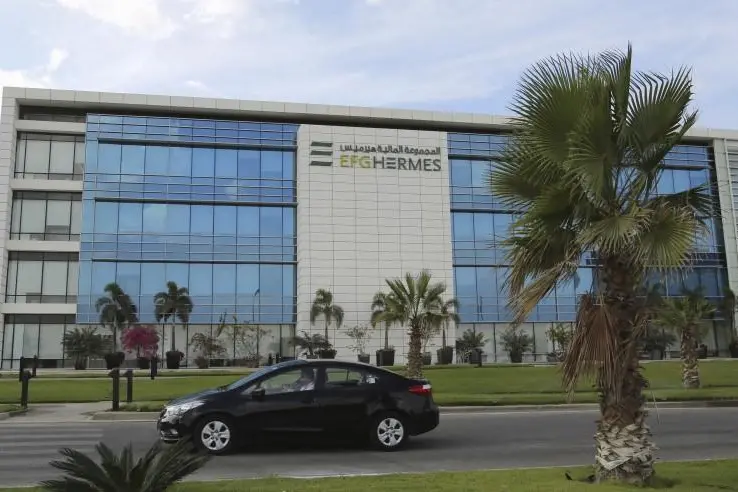PHOTO
The head of investment bank EFG Hermes' frontier markets division has said it is planning to expand further east as he predicts that a long bear market for the asset class is about to end.
In an interview with Zawya on the sidelines on the Fund Forum Middle East and Emerging Markets event in Dubai on Monday, the CEO of the bank's frontier markets division, Ali Khalpey, said the move is part of a wider push into frontier markets that has seen the firm acquire businesses in Pakistan last year and in Nigeria this year, as well as opening a representative office in Bangladesh and starting a business from scratch in Kenya.
Khalpey said that its Nigerian acquisition, which is still subject to regulatory approval, should complete "in a few weeks", and added that it was a key market for the firm as the country has a population of 200 million and a $400 billion economy with many sectors under-represented on its stock exchange.
"We like to go to markets where there are high barriers to entry, a lack of international competition, so we want to be the big international fish in the pond," he said.
He argued that EFG Hermes' broader footprint had already given it "an ability to do transactions that other banks wouldn't necessarily have the ability to do - cross-border, cross-continent type of M&A [merger and acquisition] deals, of which we're in the middle of a couple at the moment".
He said that Vietnam is its next potential target, which is a market that its frontier market research team led by Kato Mukuru is already covering.
Khalpey said that Vietnam is undergoing huge population growth and had been "revolutionised" by opening up to foreign investment - most notably from Japanese and Korean firms investing in its semiconductor industry.
"You go to Saigon today and it's nothing like it was even five years go," Khalpey said.
"Five years ago, there was no formal (mobile phone retailer). Today, there's a company Mobile World Group, listed on the stock exchange, has a couple of billion dollars market cap, which basically has hundreds of these stores, selling mobile phones, servicing them, repairs, and providing credit for them," he added.
Mukuru said that the Vietnamese stock market, although offering healthy trading volumes, was one with challenges, as banks and other sectors deemed strategically important had foreign ownership limits of 30 percent.
Moreover, he added that it was a "very opaque" market in terms of pricing.
"You basically have a two-pricing system. Foreigners are being quoted at significant premiums to market quoted prices and the problem is there is no board where you can see the last price (a share) was transacted at.
"There's a lot of discretionary potential for brokers to take advantage of clients between the real premium and the market price," he said.
Khalpey said that there were currently no foreign participants in the Vietnamese exchange currently and that all of its work is done through affiliates.
"But we're exploring ways of how we can do that at some point, whether it's 2019 or 2020," he said. "It's really high up on the agenda."
Calling the bottom
During a panel debate on emerging markets on Sunday, Khalpey said that although frontier markets had "been in a lot of distress" over the past 18 months, there have been some recent positives in terms of investment inflows from limited partners in funds who invest in the asset class.
"Certainly, there were a couple of very savvy investors in the past couple of weeks who picked the bottom of frontier EM and allocated more to it," he said.
He said that he felt Pakistan, which was only upgraded by MSCI from frontier to emerging markets last year, was "probably the most interesting market of 2019".
"Yes, Imran Khan may be having his begging bowl out, but it's great to see the begging bowl being filled - whether it's by the Saudi, or the Chinese, the Emiratis, the Qataris or the IMF, that will be resolved."
He also described Bangladesh as a market that was "under-owned, under-researched, under-utilised", arguing that although it is a country that is sometimes tough to do business in, it has a young, English-speaking population and a textile industry that could become a major beneficiary of an ongoing United States-China trade dispute.
Zin Bekkali, the founder and CEO of frontier markets specialist Silk Invest, said on the same panel that there had been a "dislocation" between developed and frontier markets over the past 10 years. In frontier markets, he said gross domestic product (GDP) has held quite well, companies have delivered earnings but the stock markets have moved in a different direction.
He said that over a 10-year period, U.S. equities had delivered four times' their initial investment, but frontier markets had only delivered 1.5 times.
"How much patience can we ask for (from) investors?" he said. "I am very optimistic about 2019 because truly we should have seen a bottom in some markets, but at the same time we have consistently being asking a lot of our investors."
(Reporting by Michael Fahy; Editing by Shane McGinley)
Disclaimer: This article is provided for informational purposes only. The content does not provide tax, legal or investment advice or opinion regarding the suitability, value or profitability of any particular security, portfolio or investment strategy. Read our full disclaimer policy here.
© ZAWYA 2018




















